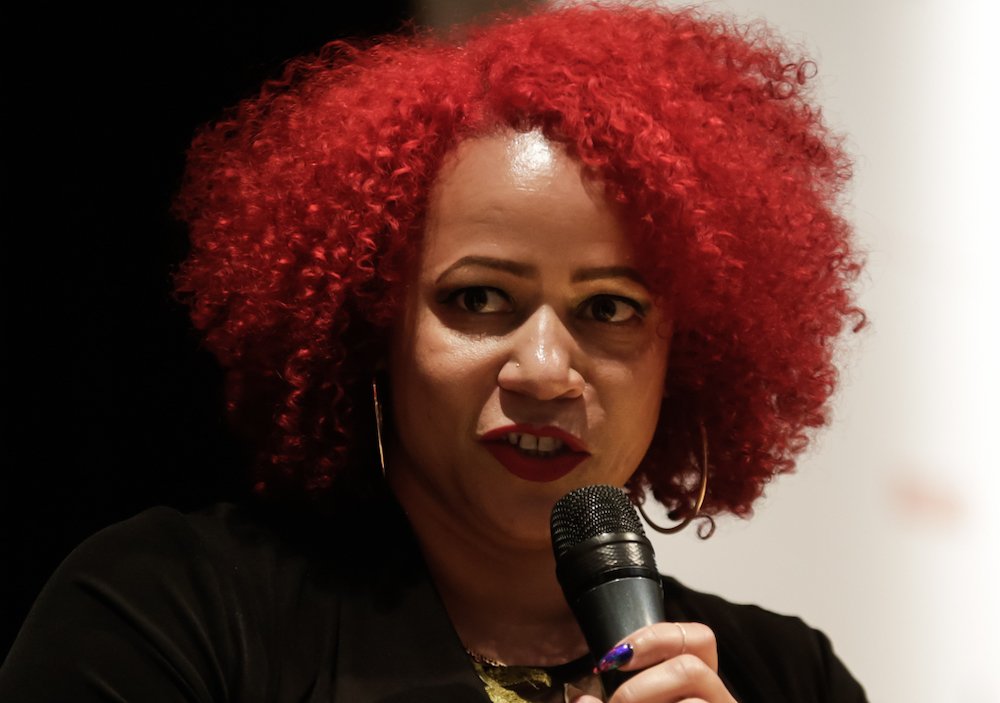[ad_1]
New York Magazine author and founding father of the “1619 Project” Nikole Hannah-Jones took to Twitter this week to supply her traditionally illiterate tackle why the United States bombed Hiroshima throughout World War II.
In a now-deleted Nov. 6 tweet, Jones tried to argue that the one cause the United States dropped an atomic bomb on the Japanese metropolis was as a consequence of monetary causes.
“They dropped the bomb when they knew surrender was coming because they’d spent all this money developing it and to prove it was worth it,” she wrote. “Propaganda is not history my friend.”
Propaganda shouldn’t be historical past, says the propagandist awarded prizes for her pretend debunked historical past, within the technique of actually sharing anti-American propaganda. pic.twitter.com/H4AxFZiE7I
— Ben Domenech (@bdomenech) November 11, 2021
Jones has since tried to backtrack on the assertion, saying that “apparently we are at a time in my career where a tweet response with 100 likes is worthy of all kinds of explication and condemnations five days after I wrote it, even after I’ve deleted it. But sure, ok.”
Well, apparently we’re at a time in my profession the place a tweet response with 100 likes is worthy of every kind of explication and condemnations 5 days after I wrote it, even after I’ve deleted it. But certain, okay.
— Ida Bae Wells (@nhannahjones) November 12, 2021
The historically inaccurate tweet got here in a collection of feedback from the “1619” founder, who stated she felt “ashamed” whereas visiting the Hiroshima Peace Memorial Museum in Japan.
“Feeling ashamed of shameful things is not BAD. It’s called being an empathetic and moral human being,” she wrote on Twitter. “Shame helps us do better. When I visited the Hiroshima Peace Memorial Museum about the impact of the US’s atomic bomb, as an American, I felt shame.”
Feeling ashamed of shameful issues shouldn’t be BAD. It’s known as being an empathetic and ethical human being. Shame helps us do higher. When I visited the Hiroshima Peace Memorial Museum in regards to the influence of the US’s atomic bomb, as an American, I felt disgrace.
— Ida Bae Wells (@nhannahjones) November 6, 2021
Jones later continued, saying, “As a Black AMerican [sic], I knew the same govt that bombed Japan was also actively segregating Black Americans & tacitly condoning racial terrorism & fascism in the U.S. South, and so even though my people were not responsible, as an American and a human I felt shame. How is this bad?”
“The desire for so many Americans to be free of collective shame, collective atonement and collective responsibility for the shameful legacy of centuries of slavery, racism, apartheid & terroristic violence visited upon fellow citizens is the sign of an immature & selfish culture,” added Hannah-Jones, whose “1619 Project” was awarded a Pulitzer Prize regardless of needing a significant correction and being criticized as revisionist historical past by high historians.
The need for thus many Americans to be freed from collective disgrace, collective atonement and collective duty for the shameful legacy of centuries of slavery, racism, apartheid & terroristic violence visited upon fellow residents is the signal of an immature & egocentric tradition.
— Ida Bae Wells (@nhannahjones) November 6, 2021
Contrary to Jones’s historic revisionism in her tweet, the United States solely dropped the bomb on Hiroshima after the Japanese authorities’s continued refusal to give up. As famous by the History Channel, “the Allies issued the Potsdam Declaration, demanding the ‘unconditional surrender of all the Japanese armed forces,’” whereas additionally warning that “failure to comply would mean ‘the inevitable and complete destruction of the Japanese armed forces and just as inevitable the utter devastation of the Japanese homeland.’”
Only after Japanese Prime Minister Kantaro Suzuki responded by telling the press that Japan was “paying no attention” to the given ultimatum did U.S. President Harry S. Truman resolve to drop the primary atomic bomb on Hiroshima on Aug. 6, 1945. Even after such devastation left roughly 80,000 folks lifeless, Japan’s supreme warfare council refused to give up to the Allies. It was solely after a second bomb was dropped on town of Nagasaki that the Japanese authorities started negotiations of give up with the United States and the remainder of the Allied Powers.
Shawn Fleetwood is an intern at The Federalist and a pupil on the University of Mary Washington, the place he plans to main in Political Science and minor in Journalism. He additionally serves as a state content material author for Convention of States Action. Follow him on Twitter @ShawnFleetwood
[ad_2]
Source hyperlink















